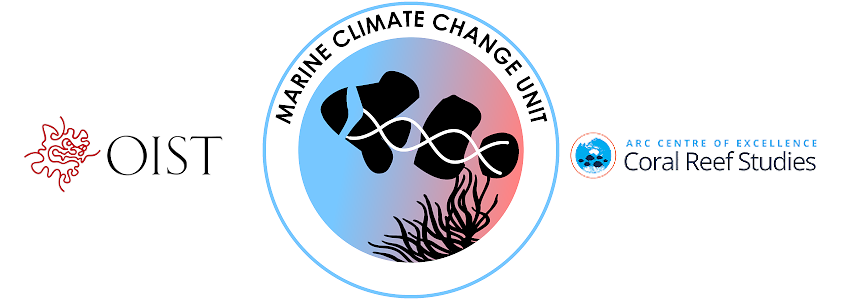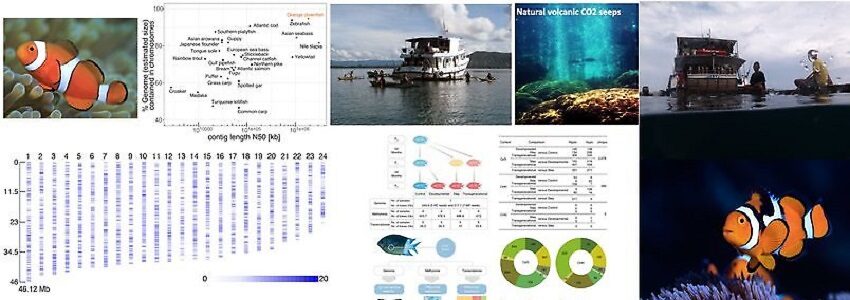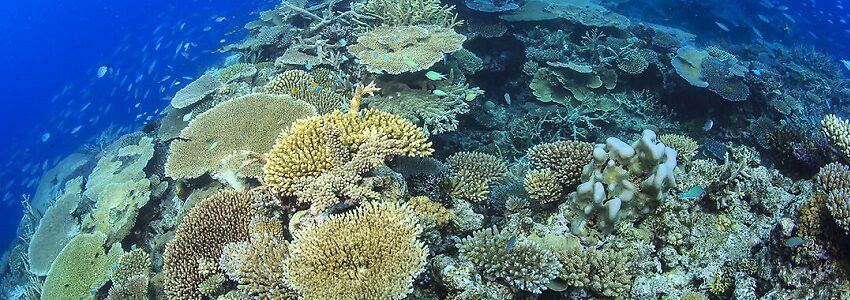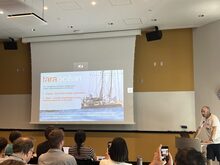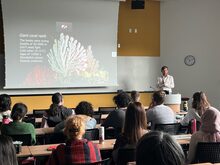Marine Climate Change Unit (Timothy Ravasi)
The overarching goal of the Marine Climate Change Unit is to understand the mechanisms of acclimation and adaptation of marine organisms to the environment. We are particularly interested in looking at ecologically relevant issues in the light of rapid environmental change, such as climate change.
Earth's oceans are undergoing a progressive acidification and warming due to increasing anthropogenic CO2 production. While climate change poses a global threat to biodiversity and ecosystem function, some species might have the capacity to adapt through evolutionary change. Consequently, determining the fate of marine biodiversity requires not only an understanding of how climate change affects marine species, but also how quickly they might adapt. It is also important to assess the impacts of climate change taking into account the pace at which it is occurring; for many marine species, predicted changes in acidity and temperature will occur over many generations. Determining which species can adapt to rapid environmental change, and how they will do so, is critical for predicting the ecological effects of climate change and the economic ramifications for human populations.
Laboratory experiments have proven to be very powerful to study acclimation and adaptation to changing environments, even with wild-caught and non-model species, but they also have their limitations because the animals are maintained in highly controlled conditions in the absence of other community members. Therefore the logical next step in our research program is to study acclimation and adaptation capabilities of fish populations directly in their natural ecosystems. Recently, we gained access to natural volcanic CO2 seeps at three global location, in Milne Bay, Papua New Guinea, Vulcano Island in Italy and White island in New Zealand. At these sites, CO2 bubbles out of natural vents in the reef where it dissolves into the surrounding seawater, making these sites a “natural laboratory” to study projected future ocean acidification.
Because we are working with non-model species and using large-scale genomics approaches, we are generating important resources for the community in the form of assembled genomes, transcriptomes and proteomes. We are developing and sharing these resources with the community by making them freely available via genome databases such as the Nemo Genome DB, where we share what are the most complete chromosome-level fish genomes constructed to date, for the orange clownfish (Nemo) and one of the common coral reef fish, the spiny damselfish.
Our long-term goal at OIST is to combine the study of evolutionary history and phenotypic and molecular acclimation to predict the ecological and evolutionary future in the light of environmental change. Resilience, acclimation to environmental stressors and adaptation potential will determine future species distribution and population structure and persistence. With the understanding of these determinant factors, in combination with environmental predictions and models, future species distributions and ecosystem change could be predicted.
Latest Posts
-
Seminar: Tara Jambio Microplastic Joint Survey: Science x Art x Education
Inviting Sylvain Agostini (Dr. Sci.), Shimoda Marine Research Center, University of Tsukuba (Assistant Professor) and Tara Ocean Japan (Director), we had a seminar titled "Tara Jambio Microplastic Joint Survey: Science x Art x Education".
https://oist.zoom.us/rec/share/vj90zMAld9hpd88-uyA5eOpn0j-6VJE3lKeSJhPvpS64cpHgy3VZ3bGn-4gqgDRF.Hgrc90R7ddti0tV_?startTime=1686102569000
Abstract of the seminar:
https://groups.oist.jp/macc/event/seminar-introducing-tara-oc%C3%A9an-foundation-around-world-and-tara-jambio-microplastics
Seminar: Coral reef ecology and restoration research at the St. John’s Island National Marine Laboratory, Singapore
Inviting Dr. Jani Tanzil, Dr. Lionel Ng, and Mr. Ow Yong Wei Long, we had a seminar titled "Coral reef ecology and restoration research at the St. John’s Island National Marine Laboratory, Singapore".
Seminar: Temperate carbonate reefs, 'blue carbon' and the 'plastisphere'
Inviting Dr. Jason Hall-Spencer, Professor of Marine Biology at the Universities of Plymouth (UK) and Tsukuba (Japan), we had a seminar titled "Temperate carbonate reefs, 'blue carbon' and the 'plastisphere'".




